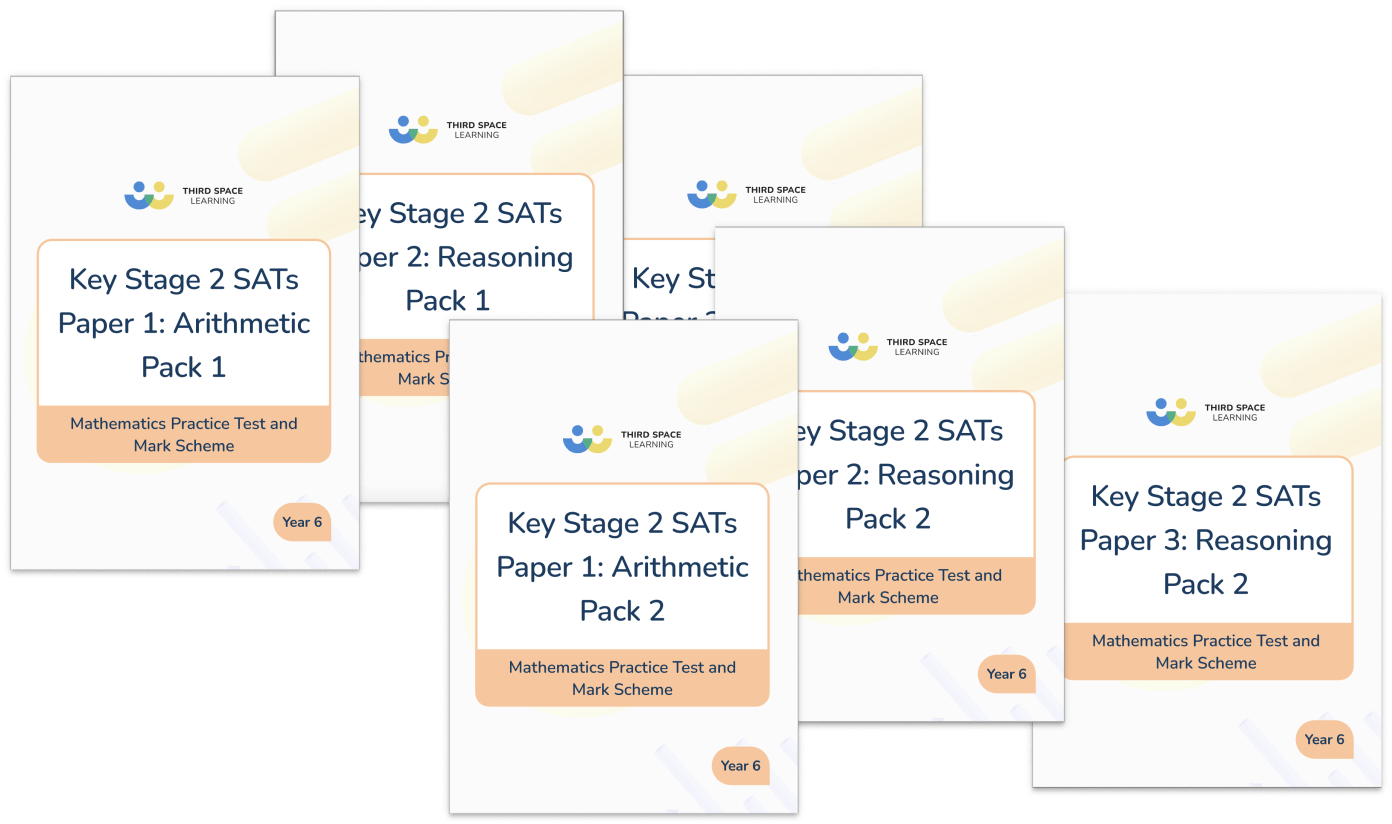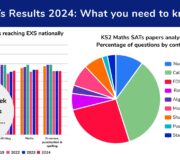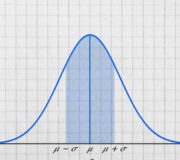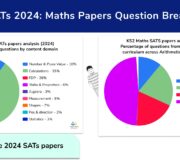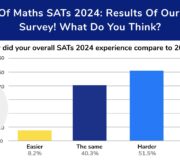KS2 Year 6 Past SATs Papers From 2016-2023 Plus Additional Practice Papers: All Free To Download
Reviewing past SATs papers gives you an extensive understanding of the exam structure, topics, and level of complexity of the questions that Year 6 children will be answering in May.
Past papers also help you to recognise the types of questions that may come up and how marks are allocated, as well as giving you opportunities to assess your pupils’ learning needs.
In this article, we’ve included links to all the past SATs papers from 2016 to 2023 to help you support your primary school pupils, together with the guidance and analysis you need to help them make excellent progress in Year 6 and succeed in their SATs.
If you have target pupils who need more help than you can provide, The Third Space Learning KS2 SATs revision programme is, we believe, the best preparation you can use for the SATs. From the first lesson, children are answering SATs-style questions from a bank of over 10,000 that the tutors have available.
You can see examples of the types of SATs questions and lessons available at the end of this article. For more info, read this article on the most valuable year 6 maths revision topics to prepare for the upcoming SATs papers.
SATS 2024: STAY UP TO DATE
Join our email list to stay up to date with the latest news and free resources for SATs 2024. As usual our expert teachers will be on hand to provide one to one tuition support, revision resources, expert analysis on papers and the 2024 SATs results.
KS2 Maths SATs Practice Papers
Get ready for SATs with this set of 6 maths SATs practice papers. Papers designed to help your Year 6 improve test skills and build confidence.
Download Free Now!Past SATs papers from 2016 to 2023
Here are all your free past SATs papers for KS2 maths together with the answers and mark schemes. We’ve also included a detailed analysis of the complexity, challenge, and topic coverage from that year’s exam, provided by our expert teachers and curriculum specialists.
If you’re a keen question spotter, and interested in our analysis of what’s likely to come up this year, this article on high and medium impact SATs topics across all the years is a must-read for all Year 6 teachers.
Past SATs papers 2016
Here are the KS2 SATs maths papers from 2016:
2016 SATs Arithmetic Paper 1
2016 SATs Reasoning Paper 2
2016 SATs Reasoning Paper 3
2016 SATs Maths Mark Schemes
Read the detailed analysis of the questions here: SATs papers 2016
Sample 2016 SATs papers
Here are the sample maths test papers from 2016:
2016 SATs Arithmetic Sample Paper 1
2016 SATs Reasoning Sample Paper 2
2016 SATs Reasoning Sample Paper 3
2016 SATs Maths Sample Mark Schemes
Past SATs papers 2017
Here are the maths SATs papers from 2017:
2017 SATs Arithmetic Paper 1
2017 SATs Arithmetic Paper 1 Mark Scheme
2017 SATs Reasoning Paper 2
2017 SATs Reasoning Paper 2 Mark Scheme
2017 SATs Reasoning Paper 3
2017 SATs Reasoning Paper 3 Mark Scheme
Read the detailed analysis of the questions here: SATs papers 2017
Past SATs papers 2018
Here are the maths SATs papers from 2018:
2018 SATS Arithmetic Paper 1
2018 SATs Arithmetic Paper 1 Mark Scheme
2018 SATS Reasoning Paper 2
2018 SATs Reasoning Paper 2 Mark Scheme
2018 SATS Reasoning Paper 3
2018 SATs Reasoning Paper 3 Mark Scheme
Read the detailed analysis of the questions here: SATs papers 2018
Past SATs papers 2019
Here are the maths SATs papers from 2019:
2019 SATs Arithmetic Paper 1
2019 SATs Arithmetic Paper 1 Mark Scheme
2019 SATs Reasoning Paper 2
2019 SATs Reasoning Paper 2 Mark Scheme
2019 SATs Reasoning Paper 3
2019 SATs Reasoning Paper 3 Mark Scheme
Read the detailed analysis of the questions here: SATs papers 2019
Past SATs papers 2022
Here are the maths SATs papers from 2022:
2022 SATs Arithmetic Paper 1
2022 SATs Arithmetic Paper 1 Mark Scheme
2022 SATs Reasoning Paper 2
2022 SATs Reasoning Paper 2 Mark Scheme
2022 SATs Reasoning Paper 3
2022 SATs Reasoning Paper 3 Mark Scheme
Read the detailed analysis of the questions here: SATs papers 2022
Past SATs papers 2023
Here are the maths SATs papers from 2023:
2023 SATs Arithmetic Paper 1
2023 SATs Reasoning Paper 2
2023 SATs Reasoning Paper 3
2023 SATs Maths Mark Schemes
Read the detailed analysis of the questions here: SATs papers 2023
For more SATs test materials visit the National Curriculum assessments area of gov.uk.
A note on KS1 SATs
In 2023, the Key Stage 1 SATs papers became optional SATs, meaning schools now decide themselves whether or not their pupils will sit these papers. You can download past SATs papers for Key Stage 1 from gov.uk.
How to make best use of past SATs papers
1. Use the paper as a practice SATs exam in class
Use the Year 6 SATs practice papers as part of your SATs preparation revision strategy. Each SATs practice test will give your pupils an insight into expectations and exam technique, making this a smoother process when sitting the official National Curriculum tests.
Your pupils will acquire time management skills by practising past papers in exam conditions, as they will begin to estimate how long to allocate for each question. Practising papers will also boost your pupils’ endurance and confidence as they will become more aware of what the exams will entail, allowing them to build their skills over time to apply to more complex questions.
2. Model how to answer SATs questions
Does the prospect of sitting an entire paper seem daunting to your pupils? Instead, you can do a walkthrough of an entire paper with your class. That way, you can live-model and break down each question step-by-step so that each year 6 maths test will become more manageable for your pupils.
Live modelling is an invaluable strategy as it allows you to demonstrate your exact thought process when answering questions. You can even pause and ask questions – during each stage – to further consolidate your pupils’ understanding. That way, your pupils will be actively involved and challenged in the modelling process.
Free download (Third Space Learning Maths Hub free registration required):
3. Work through papers in groups
You can group your class based on their learning needs, giving them the opportunity to discuss the paper and work through it with their classmates. Group work can act as a low-stakes assessment, giving your pupils an environment to practise, make mistakes, and learn from these mistakes together, without the stakes feeling as high as the official SATs.
If properly assembled, group work can allow your students to build their skills which they can eventually apply to problems independently. Consider providing groups with answer sheets or an answer booklet so they have the opportunity to review and reflect upon their work. That way, your pupils will be able to discuss topics together, increasing their problem-solving skills for the maths test, or the skills needed for the KS2 English exams such as the spelling test, the English reading test, and the SPaG test.
4. Regularly assess your pupils
Use a SATs past paper as a form of diagnostic assessment to check your pupils’ understanding of the KS2 SATs papers. Ensure you use each relevant mark scheme and check your pupils’ marks against the scaled scores to check if they meet the expected standard. In turn, using regular teacher assessments allows you to assess any common patterns such as misconceptions or gaps, which can inform your future planning where you aim to plug these gaps.
Furthermore, let your pupils have the opportunity to reflect on the papers. You can use this as data in itself to gauge how confident they feel on the topics. Pupil reflections will help you further identify any other common weaknesses, and it’s also an effective way to build your pupils’ confidence and motivation by reflecting upon and recognising their strengths.
Free download: 75 Year 6 SATs questions by topic
5. Create diagnostic lessons around common misconceptions
Plan to use a diagnostic lesson to address any common misconceptions or gaps from the practice papers. You should focus on one or two specific questions, and thoroughly break these down so your pupils have a comprehensive understanding of the process so they know exactly what they need to do to improve.
Free download: Set of 4 diagnostic quizzes Year 6
SATs questions are central to any Year 6 maths intervention programme
The Third Space Learning SATs revision programme is built around students answering specific SATs-style questions in order to best prepare them for their exams. In each of the online tutoring sessions, Year 6 pupils begin with a fluency starter to check prior knowledge on the given topic. They then move on to SATs-style reasoning questions, with the tutor adapting the level of support required based on the needs of each pupil. There are extra support slides so tutors can scaffold the process further and fill in any pre-cursor gaps as required.
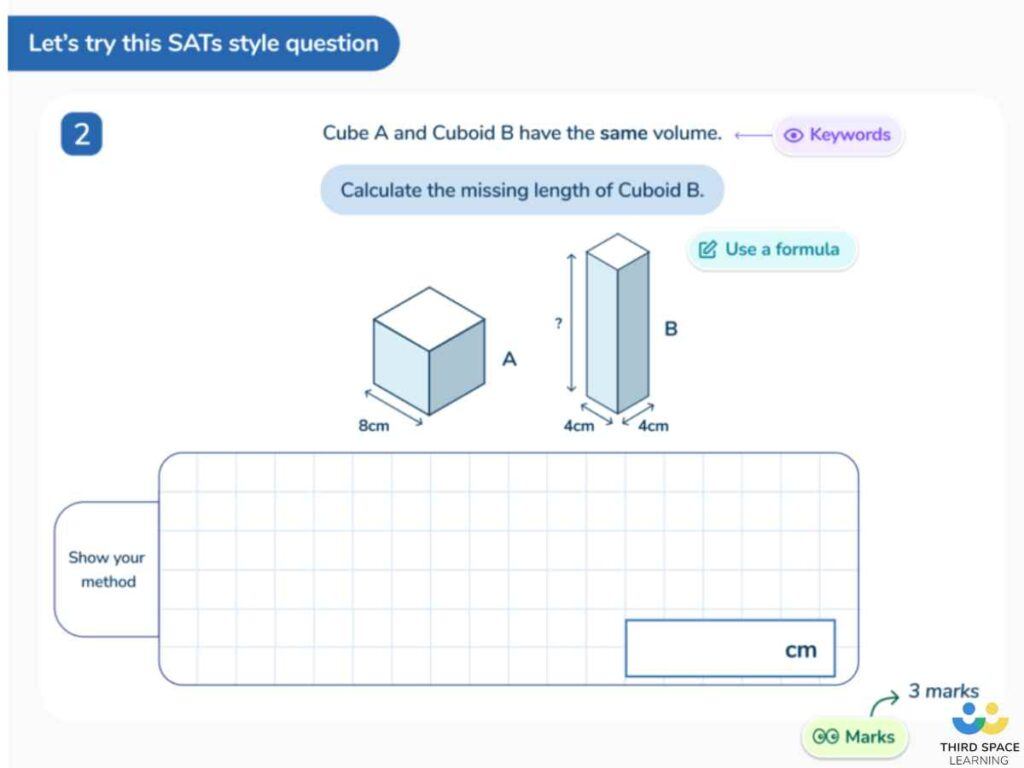
During our online SATs lessons, pupils also have plenty of opportunities for independent practice and will learn to independently apply and consolidate their knowledge. The result is to boost their confidence and required skills in order to succeed in the exams.
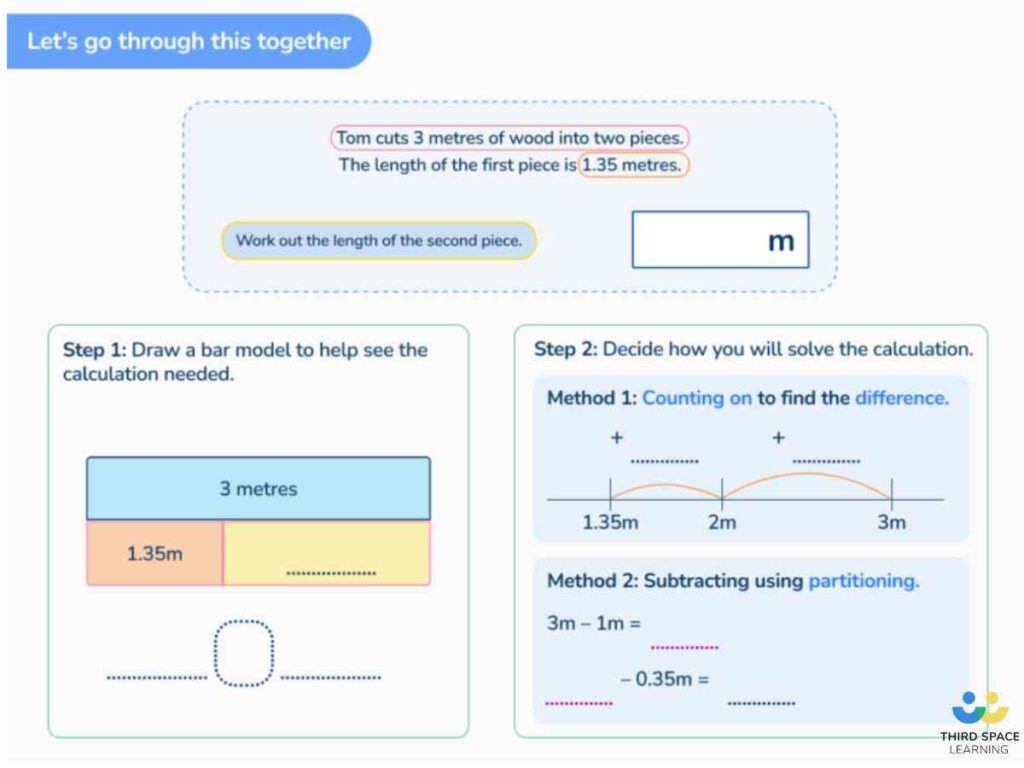
to work through problems with target pupils who require further support.
Looking for more free SATs papers?
The following bundles of SATs papers and resources are free to download.
- 6 complete SATs maths papers with answer and mark scheme
- Year 6 Maths Test
- SATs Revision resources
If you’re looking for something more specific try these:
- SATs Practice Test
- SATs Arithmetic Paper
- SATs Reasoning Paper
- Year 6 Arithmetic Questions
- Year 6 Reasoning Questions
- Year 6 Ratio Questions
- Year 6 Algebra Questions
Register for free for the Third Space Learning Maths Hub for the full range of free SATs resources available.
SATs Papers FAQs
English
SATs Grammar, Punctuation, and Spelling Paper 1
SATs Grammar, Punctuation, and Spelling Paper 2
SATs Reading Paper
Maths
SATs Arithmetic Paper 1
SATs Reasoning Paper 2
SATs Reasoning Paper 3
A good SATs score will be 100 or above as this means that a child is meeting the expected standard. Any score above this means the child has exceeded the standard, whereas any score below this means that the child is not meeting the expected standard.
If a child fails to meet the expected standard in the SATs in year 6, there is no consequence for them and they will not need to retake the SATs. However, it may reflect badly on the school.
DO YOU HAVE STUDENTS WHO NEED MORE SUPPORT IN MATHS?
Every week Third Space Learning’s specialist primary maths tutors support thousands of students across hundreds of schools with weekly online 1 to 1 maths lessons designed to plug gaps and boost progress.
Since 2013 these personalised one to one lessons have helped over 150,000 primary and secondary students become more confident, able mathematicians.
Learn about the SATs revision programme or request a personalised quote for your school to speak to us about your school’s needs and how we can help.

